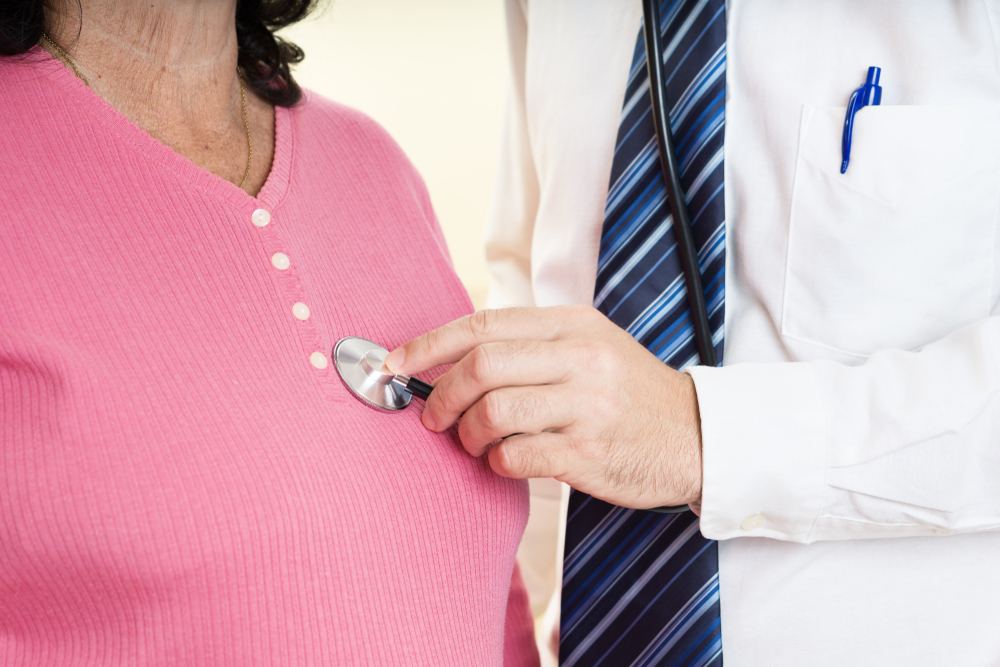

Irregular Heartbeat – Causes, Diagnosis, and Treatment at Emirates Hospitals Group
An irregular heartbeat, or arrhythmia, occurs when the heart beats too fast, too slow, or in an irregular pattern. This condition can lead to a range of symptoms from mild palpitations to serious health risks, including stroke or heart failure. Early detection and appropriate treatment are essential for managing arrhythmias and improving quality of life.
Causes of Irregular Heartbeat
- Heart Disease: Conditions like coronary artery disease, heart attack, or heart failure can lead to arrhythmias by damaging the heart’s electrical system.
- High Blood Pressure: Chronic hypertension can strain the heart, leading to irregular heartbeats.
- Electrolyte Imbalances: Low levels of potassium, sodium, calcium, or magnesium can interfere with the heart’s electrical signals, causing arrhythmias.
- Hyperthyroidism: An overactive thyroid gland can increase the heart rate, leading to arrhythmias.
- Stress and Anxiety: High levels of stress can trigger arrhythmias, especially in individuals with a predisposition to heart conditions.
- Alcohol and Caffeine: Excessive alcohol intake or high caffeine consumption can cause irregular heartbeats, especially in those with heart conditions.
- Medications: Some medications, particularly those for high blood pressure, asthma, or heart conditions, may cause arrhythmias as a side effect.
- Sleep Apnea: Obstructive sleep apnea can lead to irregular heartbeats, especially during episodes of oxygen deprivation during sleep.
- Congenital Heart Defects: Some people are born with electrical abnormalities in the heart, which may lead to arrhythmias later in life.
- Aging: As we age, the heart’s electrical system may undergo changes, increasing the risk of arrhythmias.
Diagnosis of Irregular Heartbeat
Diagnosing arrhythmias involves a series of tests to determine the type, cause, and severity of the irregular heartbeat. Common diagnostic methods include:
- Electrocardiogram (ECG or EKG): A quick, non-invasive test that records the electrical activity of the heart and identifies irregularities in heart rhythm.
- Holter Monitor: A portable ECG device worn for 24 to 48 hours to capture the heart’s rhythm during daily activities and sleep.
- Event Monitor: A device that records heart activity when the patient experiences symptoms, often worn for weeks to detect occasional arrhythmias.
- Echocardiogram: A non-invasive ultrasound that provides images of the heart’s structure and function, helping identify structural issues that may cause arrhythmias.
- Stress Test: A test that monitors the heart’s performance under physical exertion to identify arrhythmias triggered by exercise or stress.
- Electrophysiological Study (EPS): A specialized procedure in which electrodes are inserted into the heart to assess its electrical pathways and identify the source of the arrhythmia.
- Blood Tests: Tests to check for electrolyte imbalances, thyroid function, or other underlying conditions that may contribute to arrhythmias.
Irregular Heartbeat Treatments in Dubai
Managing irregular heartbeat involves a combination of medical treatments, lifestyle changes, and ongoing monitoring. At Emirates Hospitals Group, our specialists provide comprehensive care, advanced diagnostics, and personalized treatment plans to help manage arrhythmias effectively and improve heart health.
Treatment for arrhythmias aims to control the heart’s rhythm, reduce symptoms, and prevent complications. Depending on the type and severity of the irregular heartbeat, treatment options may include:
- Medications:
- Antiarrhythmic Drugs: These drugs help restore normal heart rhythm or control the heart rate.
- Beta-Blockers: Medications that reduce the heart rate and lower blood pressure, often prescribed for arrhythmias caused by stress or high blood pressure.
- Calcium Channel Blockers: These help to control the heart rate and are often used for atrial fibrillation and other arrhythmias.
- Anticoagulants: If the arrhythmia increases the risk of blood clots, anticoagulants (blood thinners) are prescribed to prevent stroke.
- Lifestyle Changes:
- Dietary Adjustments: Eating a heart-healthy diet low in salt, sugar, and unhealthy fats can help manage arrhythmias.
- Exercise: Regular physical activity can strengthen the heart and improve its electrical function, but exercise should be tailored to each patient’s condition.
- Stress Management: Techniques such as yoga, meditation, and relaxation exercises can reduce stress, which may trigger arrhythmias.
- Limiting Alcohol and Caffeine: Reducing the intake of alcohol and caffeine can help control irregular heartbeats in sensitive individuals.
- Cardioversion: A procedure where a controlled electric shock is applied to the heart to reset its rhythm, often used for atrial fibrillation or other rapid arrhythmias.
- Catheter Ablation: A minimally invasive procedure in which a catheter is inserted into the heart to destroy areas causing abnormal electrical signals, offering a potential cure for some types of arrhythmias.
- Pacemaker Implantation: A small device implanted under the skin that helps regulate the heart’s rhythm by delivering electrical impulses to the heart when necessary.
- Implantable Cardioverter-Defibrillator (ICD): A device that monitors the heart’s rhythm and delivers a shock if a life-threatening arrhythmia is detected, used for patients at high risk of sudden cardiac arrest.
- Surgical Intervention: In rare cases, surgery may be needed to correct heart defects or damaged tissue that is causing the arrhythmia.
Related Treatments
Request an appointment
Please complete the details and we will book you shortly.
